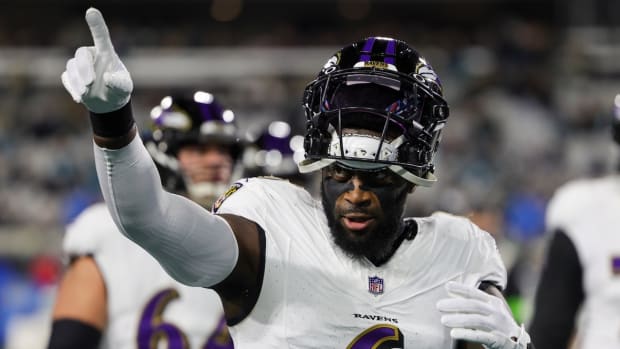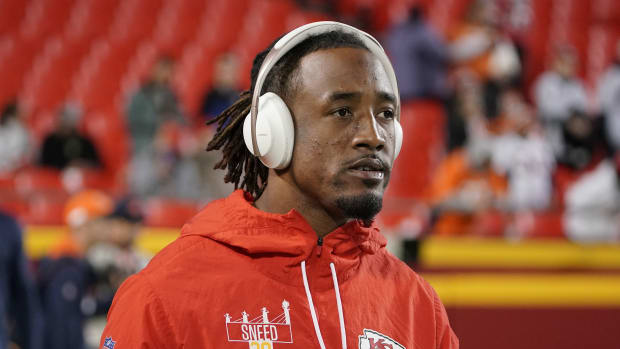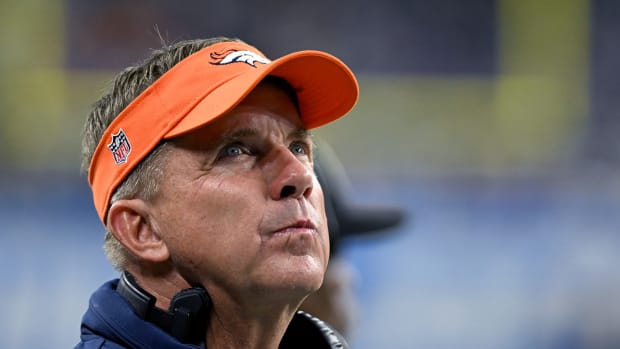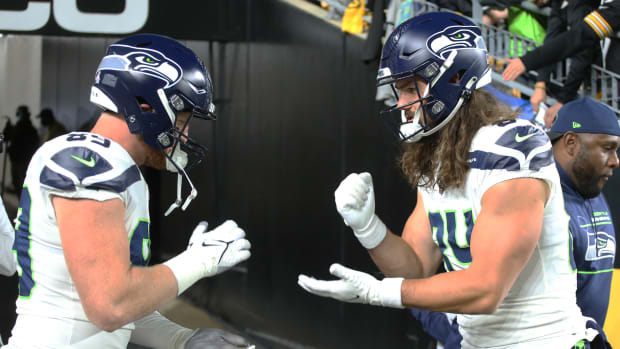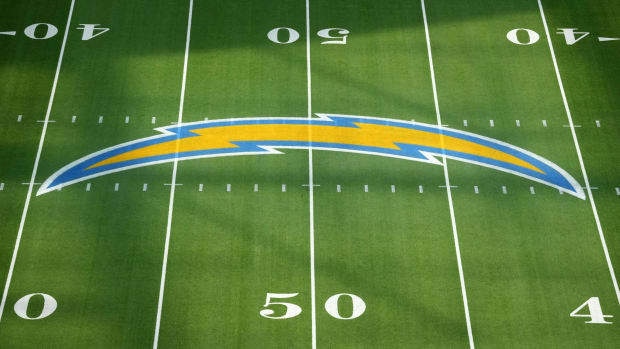Jameis Winston files counterclaims against accuser Erica Kinsman
Tampa Bay Buccaneers quarterback Jameis Winston on Friday carried through on a previous threat made by his attorney, David Cornwell, by filing three counterclaims against his accuser, Erica Kinsman. The news was first reported by TomahawkNation.com. Winston's filing can be found here. Winston alleges that Kinsman, who sued the former Heisman Trophy winner in April for sexual battery, has defamed him and damaged his potential for endorsement income. Winston also answered Kinsman’s accusations by categorically denying them. As a consequence of Friday’s legal filings, Winston and Kinsman are now suing one another in a Florida federal court with each side disagreeing about a fundamental fact: whether Kinsman consented to sexual intercourse with Winston on Dec. 6, 2012.
The legal fallout of the Winston-Kinsman sexual encounter is well documented. After a controversial investigation by law enforcement, Winston was not charged with the crime of sexual battery. Winston also received a favorable ruling in a Florida State University Code of Conduct hearing presided over by former Florida State Supreme Court Justice Major B. Harding. While some contend that Winston has received favorable treatment due to his star status, others highlight the absence of physical evidence corroborating Kinsman’s accusations.
Winston and Kinsman are now headed for a showdown in court. While Winston and Kinsman could reach an out-of-court settlement at any point, Friday’s filings suggest their legal battle will persist for some time.
Analyzing Winston’s counterclaims
Analyzing civil lawsuit against former Florida State star Jameis Winston
Winston alleges that Kinsman made “vicious lies” to frame Winston for rape and that these lies constitute defamation. Among the alleged lies enumerated in Winston’s counterclaim are that Kinsman lied about suffering memory loss the night of the sexual encounter, lied about feeling “threatened” by Winston in a cab ride and in his apartment and lied to her family, the Tallahassee Police Department, the Florida State Attorney’s Office, a Florida State University counselor and others that Winston had raped her. Winston argues that Kinsman’s “lies” have caused him substantial economic damage, and he demands compensation from her for:
(a) loss of lucrative endorsement deals that Mr. Winston otherwise would have received had Ms. Kinsman not made the False Statements that tarnished Mr. Winston’s reputation and public image; (b) lesser value of endorsement deals that Mr. Winston did receive, but that would have been more valuable had Ms. Kinsman had not made the False Statements that tarnished Mr. Winston’s reputation and public image.
Winston draws on two categories of defamation claims: defamation per se and defamation. The key difference between the two is that defamation per se includes statements that are so extremely damaging on their face that a court will presume they caused harm, whereas defamation requires the plaintiff (Winston) show they caused harm. Under Florida law, falsely accusing another person of a crime can constitute defamation per se.
For Winston, portraying Kinsman’s rape accusations against him as defamation per se is particularly important because he is a public figure. With defamation claims, public figures must prove the defendant acted with “actual malice” (which means intentionally or knowingly) in committing defamation. For Winston to win on defamation, he has to prove that Kinsman was not merely mistaken about whether she consented. He must instead show she fabricated a story from the start. Defamation per se, however, presumes the harm has occurred. To the extent Winston can convince a jury that he is telling the truth, defamation per se effectively relieves Winston of the necessity of showing that Kinsman lied intentionally or knowingly.
Jameis Winston selected No. 1 by the Tampa Bay Buccaneers in NFL draft
Winston, however, still must convince a jury that his account is more believable than that of Kinsman in order to win on any type of defamation claim. In a civil trial, the plaintiff must show a preponderance of evidence, which means “more likely than not.” If jurors aren’t sure whether to believe Winston or Kinsman, neither side would prevail in their claims.
Winston saves his harshest statements about Kinsman for his third claim: tortious interference with prospective business advantage. This claim contends that Kinsman intentionally sought out to damage Winston’s endorsement potential as a form of blackmail prior to the NFL draft. Winston writes:
Ms. Kinsman has repeated her false statements with the specific intent of causing immediate injury to Mr. Winston thereby enhancing her ability to coerce Mr. Winston into paying her off to silence her and, thereby, preserve his prospective business relationships and his future earnings … [S]hortly before filing the instant action, one of Ms. Kinsman’s counsel asked members of the media and, perhaps, other informed persons how far in the 2015 NFL Draft Mr. Winston would fall if he were not selected with the first pick of the NFL Draft. Thereafter, on April 16, 2015, two weeks before the 2015 NFL Draft, Ms. Kinsman filed the instant action.
Winston similarly contends that Kinsman tried to “extort” him by making him fear how she could harm his endorsement potential:
Ms. Kinsman’s false statements, made directly and indirectly through and at the direction of her counsel, were calculated to cause enough damage to Mr. Winston in his lawful business in order to coerce and extort him to make a civil settlement with her and “make her go away.” Ms. Kinsman knew that her allegations would substantially harm Mr. Winston and his professional prospects, but that he likely would still sign some form of NFL contract and earn sufficient salary and other income to “pay her off.”
Risks and rewards for Winston in suing Kinsman
By suing Kinsman for defamation, Winston empowers her to introduce relevant character evidence against him. This category of evidence would include sexual assault allegations made by other women against Winston and other evidence that sheds light on his sexual behavior. While this type of evidence would have been inadmissible “prior bad acts” in Kinsman’s lawsuit, Winston suing her puts this evidence in play. Similarly, should the litigation advance to the pretrial discovery stage, Winston would face a broader range of adversarial questions posed by Kinsman’s attorneys.
• Lovie Smith: 'We feel comfortable who Jameis Winston is'
Winston, therefore, now runs a higher risk of a trial revealing damaging information about him. In a worst-case scenario for Winston, incriminating evidence and implicating testimony surface and they prompt law enforcement to reopen the sexual assault investigation. Keep in mind, Winston can still be charged for the crime of sexual battery. The relevant statute of limitations for sexual battery under Florida law does not expire until at least December 2016. Although the odds of the investigation being reopened are extremely low, it remains a possibility and thus remains a threat.
What are Tom Brady's options after release of Deflategate report?
Less importantly for Winston, expanding his litigation with Kinsman could produce information that causes Nike, a sponsor of Winston, to question its endorsement deal with him. In its deal, Nike, like any major sponsor, has included “morals clause” language that permits a company to exit an endorsement deal if the public views a player in a negative light due to his off-field conduct. The NFL and commissioner Roger Goodell would also frown upon any new allegations against Winston.
On the other hand, Cornwell has likely calculated that Winston has already been thoroughly vetted by the media. Any skeletons in Winston’s closet have probably been made public. Plus, by suing Kinsman, Winston might gain significant negotiation leverage in settlement talks. She now runs the risk of losing a trial and owing Winston money, as opposed to the other way around.
The most likely outcome in the Winston-Kinsman legal battle is a settlement. But Friday’s legal maneuverings suggest that some of Winston’s time away from the Buccaneers this fall will be spent not learning Lovie Smith’s playbook, but rather studying strategies his attorneys share with him.
Michael McCann is a Massachusetts attorney and the founding director of the Sports and Entertainment Law Institute at the University of New Hampshire School of Law. He is also the distinguished visiting Hall of Fame Professor of Law at Mississippi College School of Law.
































